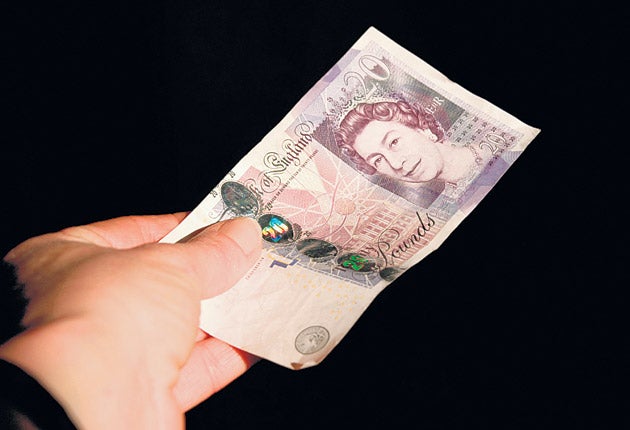Recession brings out the snitches as HMRC pays whistleblowers £1 million over last three years for providing information on tax cheats

Your support helps us to tell the story
From reproductive rights to climate change to Big Tech, The Independent is on the ground when the story is developing. Whether it's investigating the financials of Elon Musk's pro-Trump PAC or producing our latest documentary, 'The A Word', which shines a light on the American women fighting for reproductive rights, we know how important it is to parse out the facts from the messaging.
At such a critical moment in US history, we need reporters on the ground. Your donation allows us to keep sending journalists to speak to both sides of the story.
The Independent is trusted by Americans across the entire political spectrum. And unlike many other quality news outlets, we choose not to lock Americans out of our reporting and analysis with paywalls. We believe quality journalism should be available to everyone, paid for by those who can afford it.
Your support makes all the difference.The Government has paid out more than £1 million in rewards for information on tax cheats since the start of the financial crisis, it was revealed today.
HM Revenue & Customs (HMRC) handed over nearly £400,000 last year as part of little known “bounty payments” for reporting on tax evasion, according to figures obtained by the investigative website Exaro. The rewards rose by more than a fifth compared to the previous financial year.
The amount paid for information ranged from around £50 to tens of thousands of pounds, depending on how much tax is recouped as a result of the information provided.
One of the largest payments is believed to have been in 2008, when HMRC was said to have paid £100,000 to a former Liechtenstein banker for a list of secret offshore accounts held by Britons.
But more typically HMRC informers are ex-business partners, former spouses and employees, as well as people reporting “someone bragging in the pub” and “warring neighbours”, according to revenue.
An informer’s identity is generally kept confidential, although it may have to be disclosed in certain legal proceedings
The total of £373,780 paid out by HMRC in the past year compares with £309,620 in 2010-11, £384,110 in 2009-10, £281,000 in 2008-09, and £155,950 in 2007-08.
An HMRC spokesman described the annual totals as “lumpy”, with a few big rewards in a year able to skew the figures.
An HMRC spokesman said: “If we are recovering many millions of pounds in tax, the payment reflects that.”
The increase in reward payments over recent years may reflect growing disquiet about tax evasion.
“Tax non-compliance now has a much higher profile in the public mind,” the spokesman pointed out.
John Whiting, director of tax policy at the Chartered Institute of Taxation, said: “While many people do not realise that they can get money [for informing], the Revenue does have the power to pay.”
Stephen Camm, tax partner at PwC, suggested that the increase in the top rate of income tax to 50 per cent in 2010 could be a factor in the rising payouts. “When tax rates go up, there is more evasion,” he said.
The HMRC spokesman said that the cash is only handed out once any tax is recovered, a process that can take years.
Payments are at HMRC’s discretion, said the spokesman. The rewards depend on “the value of the information and the quality of the result”, he added, although they are not a fixed per-centage of the tax recouped.
He said, however: “We would expect individuals to think first about the wrongdoing rather than about how much they might make.”
A total of £42 million of unpaid tax was recovered between 2005 and 2009 as a result of information received from members of the public, according to HMRC.
Join our commenting forum
Join thought-provoking conversations, follow other Independent readers and see their replies
Comments